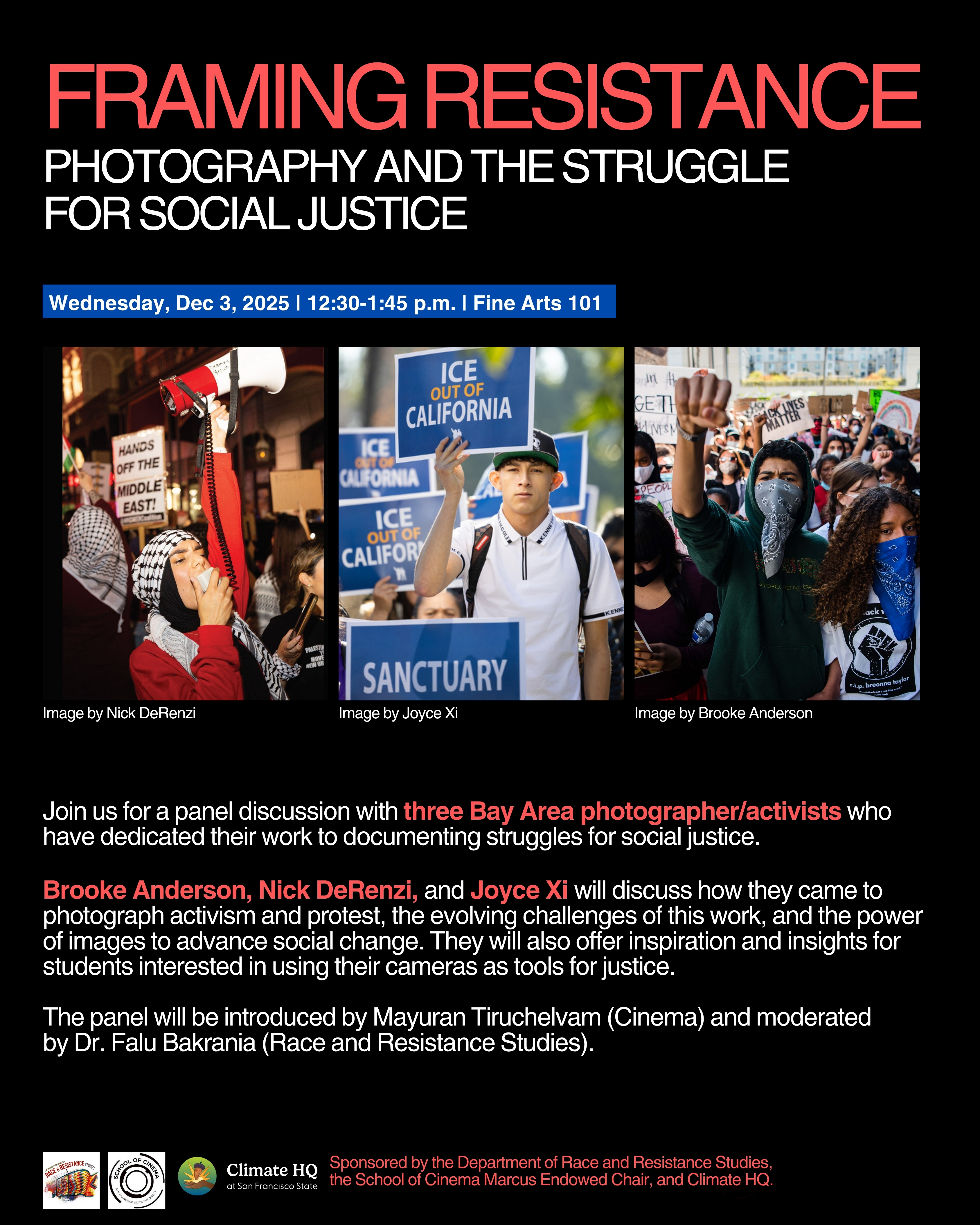
Spotlights
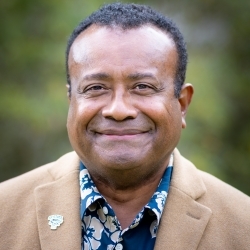
Faculty Spotlight
Ponipate Rokolekutu
Dr. Ponipate Rokolekutu is an Assistant Professor in the Department of Race and Resistance Studies at San Francisco State University. An iTaukei scholar and Mata ni Vanua from the lineage serving the Tui Kuku in the Vanua of Nailagolaba, his research examines the colonial and neo-colonial history of iTaukei land dispossession in Fiji, revealing how institutional frameworks such as the iTaukei Land Trust Board and the 1965 Mining Act entrench economic dependency and state control over Indigenous land and resources.
Grounded in Vanua and Talanoa pedagogy and informed by Paulo Freire’s problem-posing education, Dr. Rokolekutu’s teaching fosters spaces of dialogue, reflection, and transformation where students critically examine colonialism, capitalism, and empire while envisioning liberatory futures. At SFSU, he works collaboratively with colleagues in Critical Pacific Islands and Oceania Studies (CPIOS) to strengthen its presence within Ethnic Studies.
He serves as Principal Investigator for two major CSU AANHPI-funded initiatives: the Oceania Scholars Program (OSP) ($460,000) and the ASPIRE Collaborative ($1.8 million), which collectively advance the belonging, retention, and success of Pacific Islander and Southeast Asian students across the SFSU. A former Visiting Scholar at UC Berkeley’s Asian American Research Center, Dr. Rokolekutu is Co-Editor of the 2024 special issue of the Okinawa Journal of Island Studies, “Our Sharpest Tools: Unsettling Empire from Islands and Ocean,” which features his article, “Interrogating British Colonial Benevolence and the Annexation of the Fijian Islands.” He is also contributing to the forthcoming special issue of The Contemporary Pacific with his article, “Teaching in Relation, Teaching in Resistance: Rethinking Pacific Worlds from the Margin.”
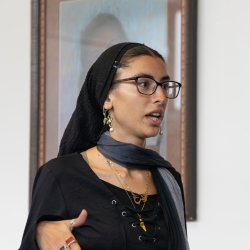
Student Spotlight
Ziniab Imtair
Ziniab Imtair is a senior Communications major and an RRS minor at San Francisco State University. She is a resident of the General Union of Palestine Students (GUPS), and during this current Fall 2025 semester, she has begun working within the RRS Department as a Peer Student Retention Specialist.
This has been rewarding for Ziniab because not only does she get to help her fellow students navigate the requirements for the various degrees under RRS, but also because she gets to work with RRS faculty and staff to give back to the department that has inspired her for future work in the community.
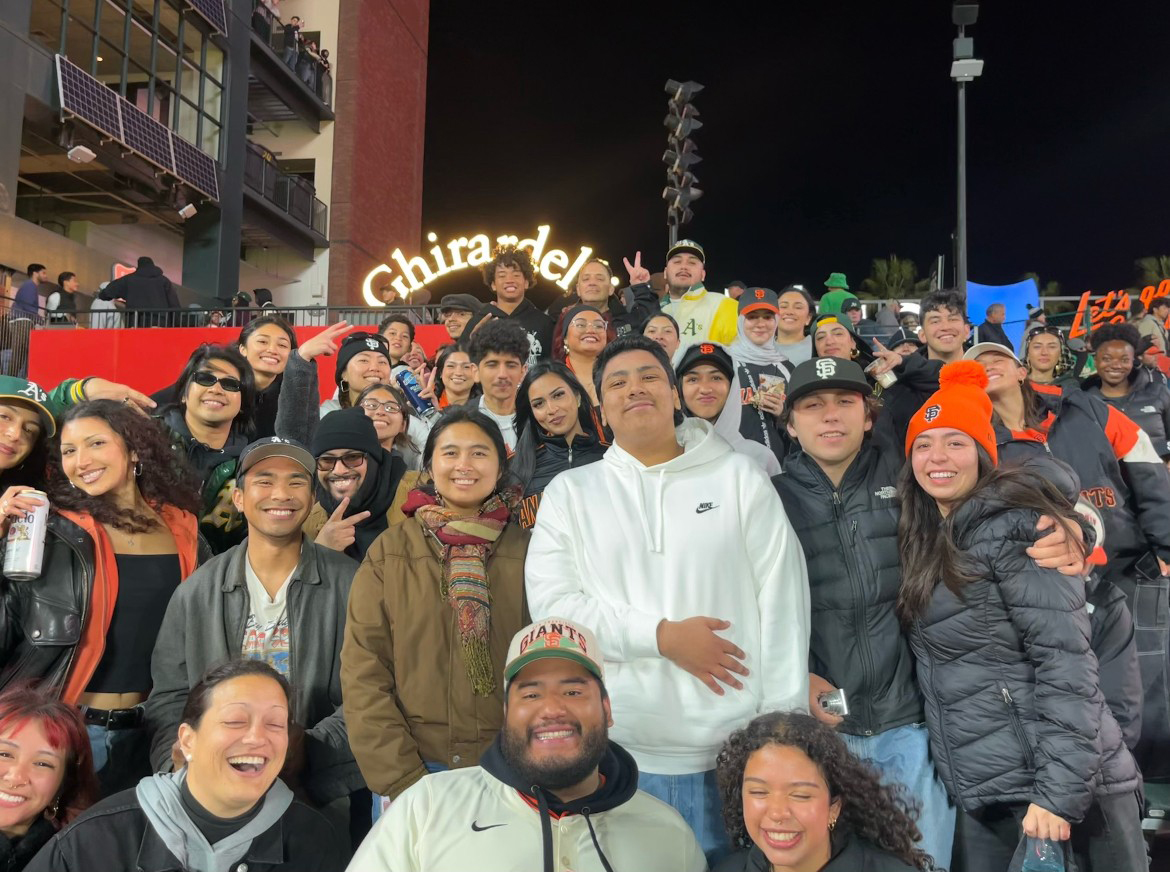
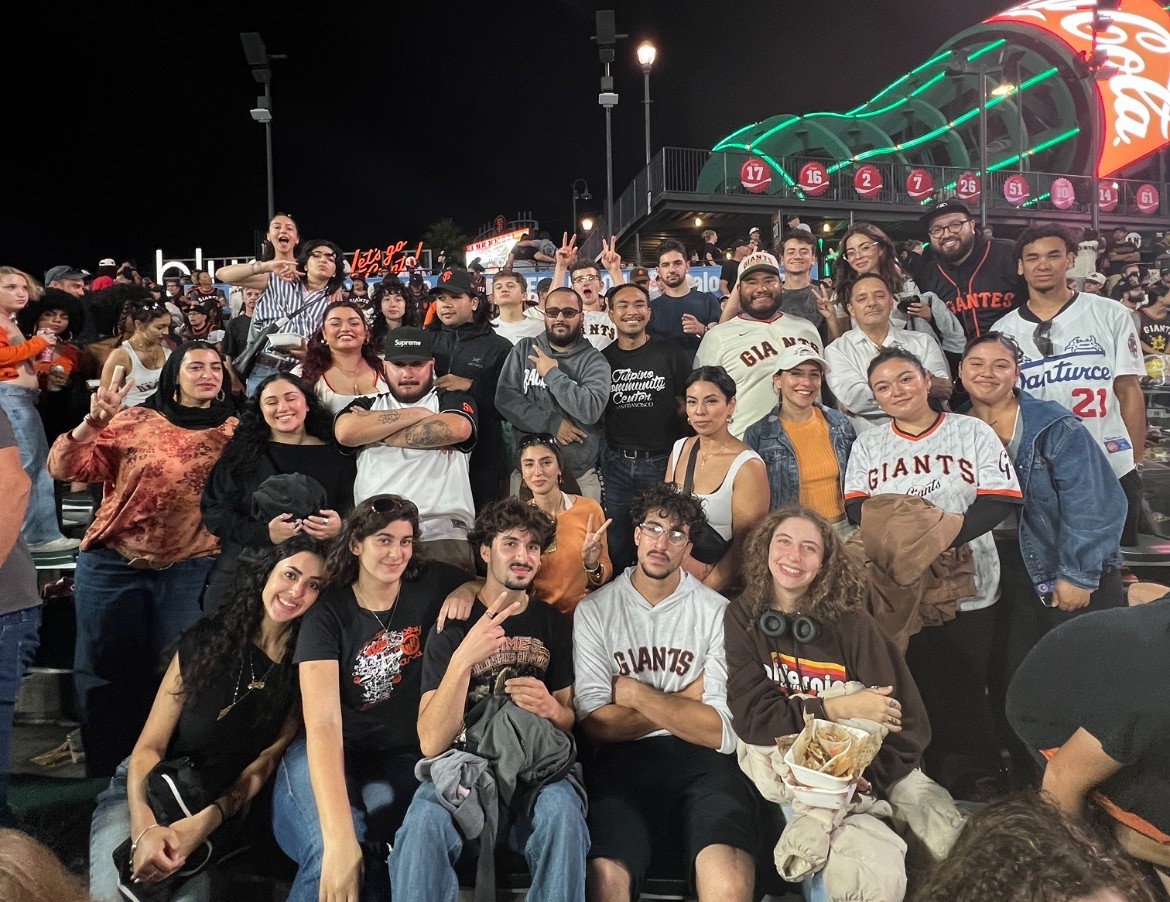
At least once every semester, for the past ten years, current and former students from RRS 285 (Race, Sports and Society) have gathered at Oracle Park to hang out together and watch a Giants game.
These photos are from two separate outings this past season. The first was taken in May, just before SFSU's graduation at the same stadium while the second captured the fun from late September.
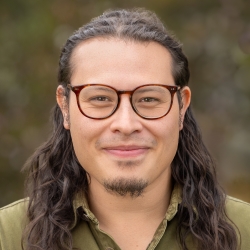
Staff Spotlight
Ricardo Sarmiento
Hello!
My name is Ricardo Sarmiento, and I am the assistant to the Dean in the College of Ethnic Studies. I am a SFSU almna, with a B.A. in Latino/Latina Studies and Chemistry. My family is from Honduras, Central America and I grew up in South San Francisco.
At SFSU, I enrolled in the Chemistry department with the idea of going to medical school but my experiences there took me in a different direction. In my chemistry courses, I eagerly studied biochemical structures within cells and alternative energies to current fossil fuels. I saw the dire need for clean, sustainable energy and recycling to fight climate change. I examined how the environment greatly affects health and gradually saw the connection between science and social justice through a public health internship.
My Latinx Studies courses exposed me to the intersection between science and public health. I studied applications of liberation psychology, an instrument of consciousness raising and politicization, which influenced my approach to working with vulnerable populations. These concepts were solidified through an internship within the Ethnic Studies Department, Clínica Martín-Baró, a community clinic collaboration between SFSU and UCSF students and faculty serving undocumented, uninsured Latinx community. As a volunteer, I would lead discussions on preventative health topics using Paulo Friere’s ideas of popular education. Additionally, I advocated for patients during their doctor visits, ensuring the patient understood the information given by the provider and their next steps in their care with a Trauma Informed Care approach. My volunteer experience brought me to working with Medi-Cal patients, to help them navigate the complex healthcare system in San Francisco.
After working in the Health Care Sector for 5 years, I decided to return to school to receive a Masters in Public Health, from UC Berkeley, focusing on Health Policy and Management. My interests in grad school were around Food as Medicine policies and programs in California, quality improvement in health programs and policy advocacy to support undocumented immigrant farm workers.
Today, I help support the Dean and office in the College of Ethnic Studies planning programming and events for the college such as the 57th Anniversary of the BSU & TWLF Student Strike and working on communications for the college including our webpages, emails, social media, newsletters, and podcasts. If you have any questions, feel free to email me at ricksarm@sfsu.edu, or stop by EP121.
Announcements
Faculty News
The College of Ethnic Studies proudly announces that San Francisco State University has been awarded $1.8 million from the CSU Asian American, Native Hawaiian, and Pacific Islander Student Achievement Program (ASAP) to establish the ASPIRE Collaborative (Asian, Asian American, and Pacific Islander Resource & Education) for 2025–2030.
This five-year initiative, led by Dr. Ponipate Rokolekutu (Principal Investigator) in collaboration with Arlene Daus-Magbual and Jeremy Khuth (Co-Principal Investigators) - brings together the Oceania Scholars Program (OSP), the AANAPISI REACH Initiative, Critical Pacific Islander & Oceania Studies (CPIOS), and the Asian American & Pacific Islander (AA&PI) Student Services Collaborative. Together, these programs form the ASPIRE Collaborative, a cross-divisional partnership between the College of Ethnic Studies and Student Affairs & Enrollment Management (SAEM) designed to advance educational equity, belonging, and success for AANHPI students, particularly those historically underrepresented and underserved in higher education.
With $360,000 annually over five years, the ASPIRE Collaborative will sustain and expand culturally grounded, equity-driven services that foster community, persistence, and student leadership. The initiative’s key objectives include advancing data equity for Native Hawaiian, Pacific Islander, and Southeast Asian students; expanding community-based recruitment and outreach through the REACH Initiative; and enhancing retention and student success through OSP’s learning communities and cultural mentorship in partnership with CPIOS.
Since its launch, OSP has doubled NHPI student engagement and increased student visits by 400%, while REACH has connected with over 4,500 students through 140 community presentations and its inaugural Ethnic Studies Youth Summit.
“The ASPIRE Collaborative continues our commitment to building pathways of belonging and success for Pacific Islander and Southeast Asian students,” said Dr. Ponipate Rokolekutu, Principal Investigator of the Oceania Scholars Program and ASPIRE.
“This initiative reaffirms that the work of Ethnic Studies is about community transformation and the pursuit of educational justice.”
The ASPIRE Collaborative, supported through the CSU ASAP Program, ensures that this transformative work continues, empowering AANHPI students to thrive, lead, and redefine educational success through the values of community, belonging, and resistance that lie at the heart of Ethnic Studies.
Professor César "che" Rodríguez presented at the "New Developments in Academic Worker Organizing" panel at "Rights and Wrongs: A Constitution Day Conference" held at SFSU on September 18. The topic discussed was about the CFA campaign to shut down five (5) California prisons due to a declining population of incarcerated persons and unused prison capacity, and use those savings to fund the CSU.
Thanks to Dr. Rama Ali Kased, Professor che delivered a talk on the late Cedric Robinson, and the utility of Robinson's concepts, specifically: racial capitalism, the Black Radical Tradition, and racial regimes. This was part of the "Introduction to Racial Capitalism" popular education series that Dr. Kased organized with and through The People's Forum in New York.

Dr. Rokolekutu opened for the 3rd Annual Talanoa Series at De Anza College on October 27.
Dr. Ponipate Rokolekutu delivered the opening keynote for the 3rd Annual Talanoa Series at De Anza College. His talk, “The Truth About Stories: Talanoa as Resistance and Survival,” centers Indigenous storytelling as a form of survival, resistance, and reconnection across the Pacific. The series, held in partnership with Talanoa gatherings across the West Coast, continues to honor oceanic knowledge, storytelling, and collective resilience.
The event was hosted by De Anza College’s IMPACT AAPI Program.
Professor Leora Kava had the great privilege of working with Pasifika Bay Area artists and organizers Daniel Naha-Ve'evalu, Sophia Tupuola, Epi Aumavae, and Spencer Pulu (aka SPULU) to organize and facilitate the Hella Pasifika Exhibition at The Hub in Sunnydale. Everyone was HELLA excited to birth this project highlighting the great works 13 Pasifika Artists here in the Bay. The exhibition ran from September 20 to October 20, 2025. Some works will be permanently housed at The Hub in Sunnydale, and hopefully, other pieces will have permanent installation in other venues in the Bay.
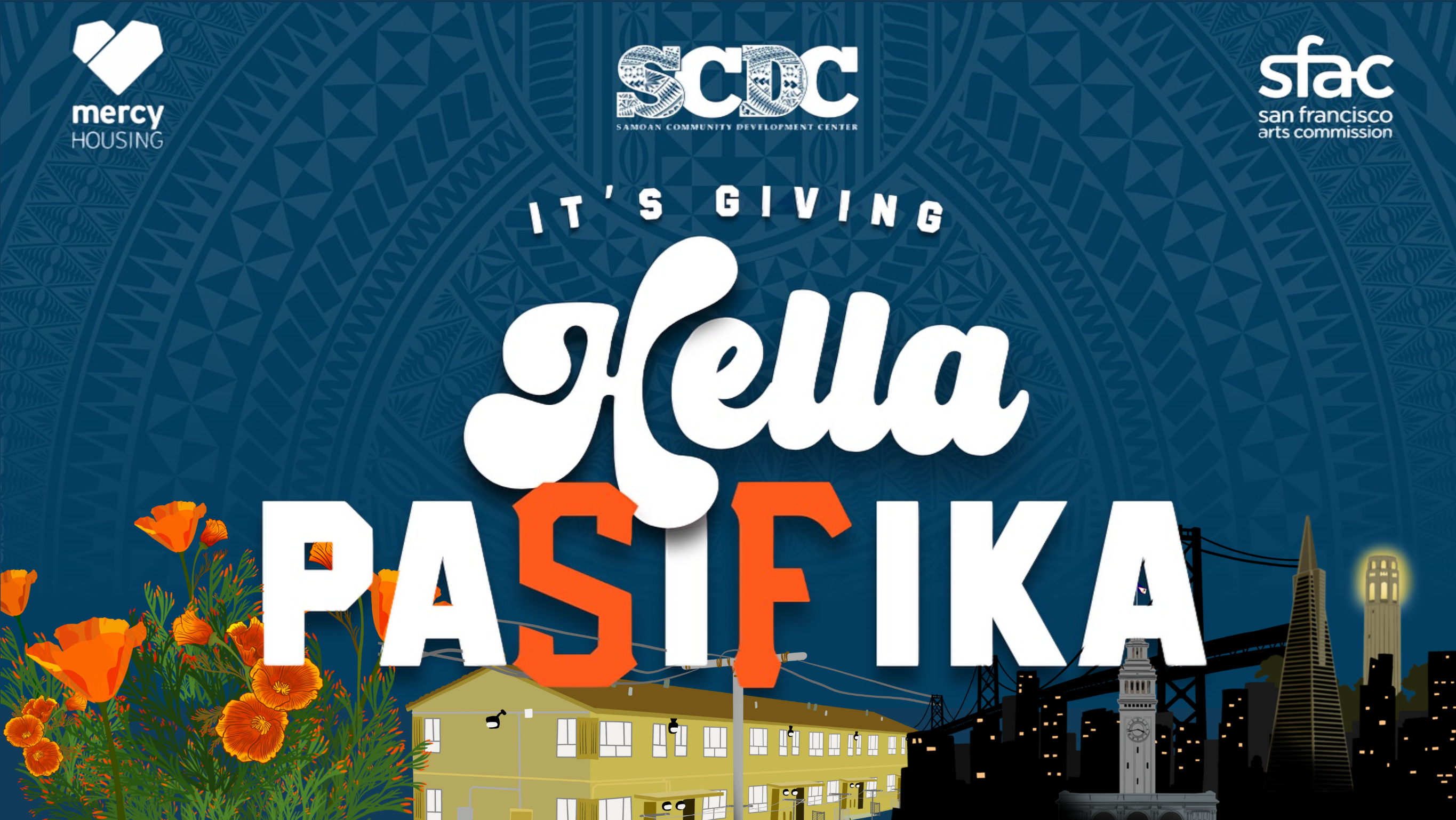
Dr. Rokolekutu Invited to Speak at Fiji’s 27th Attorney-General’s Conference on December 5 – 6 in Sheraton Golf & Beach Resort, Denarau, Fiji.
The Department of Race and Resistance Studies congratulates Dr. Ponipate Rokolekutu, Assistant Professor of RRS and Principal Investigator of the Oceania Scholars Program and ASPIRE on his invitation to speak at the 27th Attorney-General’s Conference in Fiji, one of the nation’s most significant legal and policy forums.
This year’s conference, attended by more than 400 members of the judiciary, legal profession, and government, will focus on pressing issues shaping Fiji’s legal landscape. Dr. Rokolekutu will present in the featured session titled “Colonial Constructs and the Shaping of Native Land Law in Fiji.” His presentation will critically examine how colonial policies, including the establishment of the Native Land Commission and the codification of land ownership under British rule, continue to influence contemporary governance, law, and indigenous sovereignty.
Dr. Rokolekutu’s invitation recognizes his scholarly and community leadership in advancing Indigenous perspectives on land, law, and decolonization, and his continuing contribution to global conversations on social justice and Indigenous land rights.
Dr. Rokolekutu to Keynote Oceania Northwest’s Village Gathering on December 13 at Pacific Northwest.
Dr. Ponipate Rokolekutu, Assistant Professor of Race and Resistance Studies and Principal Investigator of the Oceania Scholars Program and ASPIRE has been invited to keynote the annual Village Gathering hosted by Oceania Northwest. Based in Washington State, the organization uplifts Pasifika communities through unity, relational restoration, and Indigenous cycles of care. Dr. Rokolekutu’s address will speak to the power of storytelling, resistance, and survival in diasporic spaces and across Oceania, connecting his work at SFSU with broader community efforts to advance Indigenous sovereignty, healing, and intergenerational empowerment.
This groundbreaking book documents how digital platforms and technology companies based in the United States support the Israeli settler-colonial project, illuminating how these platforms have become new tools of anti-Palestinian suppression, despite having been initially instrumental in advancing the Palestinian struggle. Despite their alleged support of free speech and democratic values, tech titans like Meta, Google, and X have become conduits for the promotion of the Zionist colonial project. In Terms of Servitude, Professor Omar Zahzah demonstrates how these digital giants participate in anti-Palestinian oppression through censorship justified by so-called "terms of service" or "community standards." As Al technology and metadata are wielded as tools of suppression, anti-colonial counter-narratives across online platforms become increasingly urgent. Through careful analysis and documentation, Zahzah explores what resistance can and must mean in light of the consolidation of Big Tech with Israeli settler colonialism and genocide.
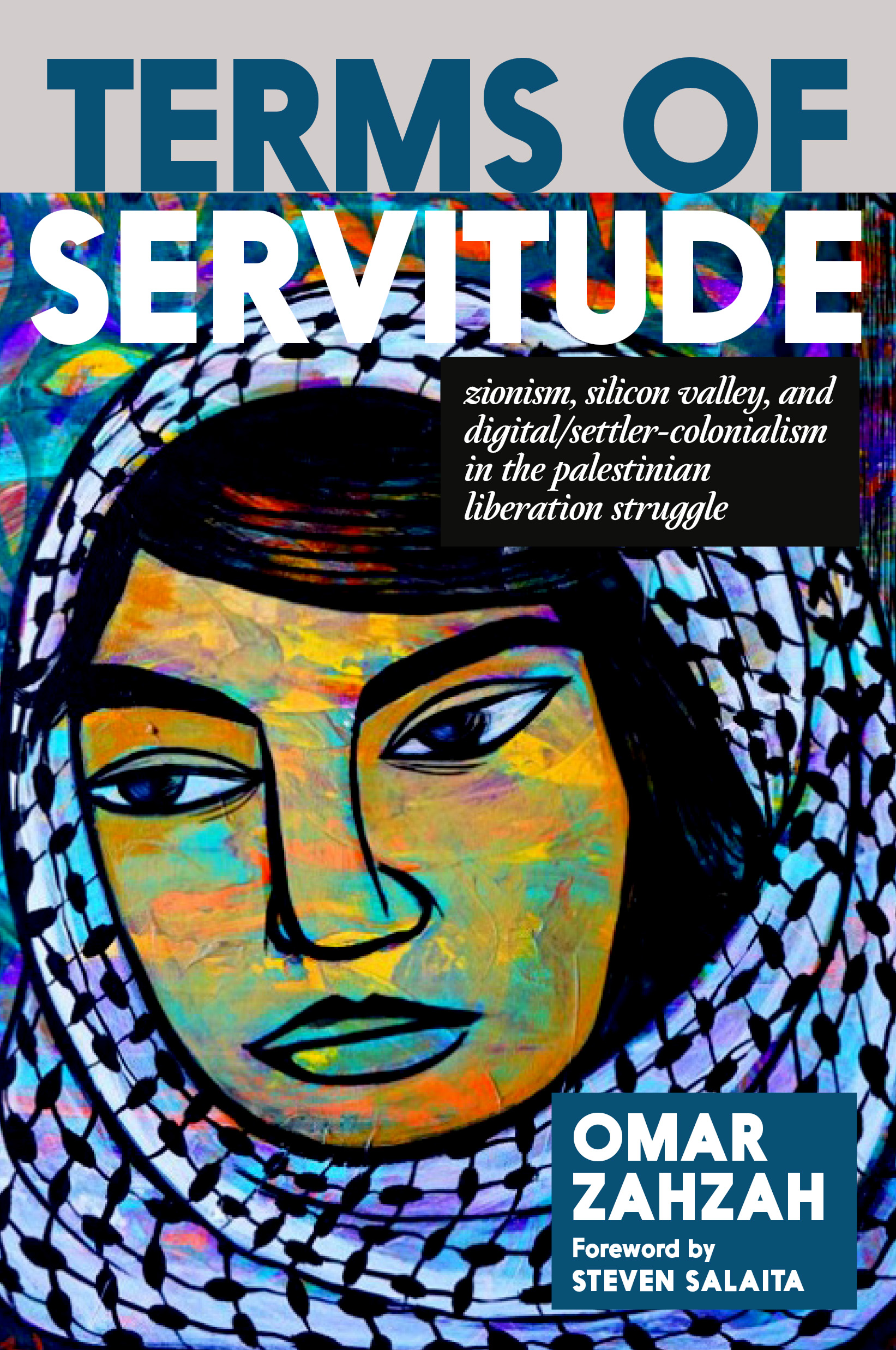
In this talanoa, talk through a process of faʻu maau — or what I humbly propose to be a process of making poetry, or “making a right arrangement.” A “right arrangement” could come from piecing together what is around us and within us (images, sounds, words, movements, thoughts, emotions) in order to create the conditions in which our audiences — our people — can experience māfana. I place the phrase “faʻu maau” next to the everyday (and sometimes impatient) question “ʻosi maau?” to consider how the strategies and tactics for making art are always around us, waiting to be arranged for our needs and purposes.

Dr. Rama Ali Kased was featured at the 16th Annual Talanoa Series on October 28th at City College of San Francisco.
Dr. Kased’s talk entitled, “Love, Resistance, and Solidarity: Frameworks for Collective Liberation,” positioned solidarity as a guiding compass for justice and liberation. It highlighted how movements are interconnected through the practices of love, resistance, and collective struggle. Drawing on decolonial and feminist frameworks, Rama discussed the ways in which collectiveness is needed to challenge oppressive power dynamics and conditions. Rather than seeing liberation as isolated or individual, she emphasized that true freedom is collective — grounded in radical love, sustained through resistance, and made possible through solidarity across struggles.

Dr. Kased is the founding leader of the Metro College Success Program and plays a key role on Metro’s leadership council, guiding strategic planning for a program that now serves over 30% of incoming first-year students. Dr. Kased is cited as a “brilliant educator and a courageous leader”; her teaching effectiveness is consistently outstanding. Students frequently cite her clear instruction, thoughtful course design, and extraordinary ability to foster a sense of belonging. Her pedagogy is grounded in social justice, community-building, and academic rigor. The learning experiences she provides to students resonate deeply with students' lived realities, as students often describe her courses as life-changing. She empowers students to take their rightful place in shaping institutional decisions, cultivating meaningful collaborations between students and university leaders.

Student News
We are excited to announce a new course! In this course, we will explore the intertwined histories of photography and race from an Ethnic Studies perspective. From colonial archives to contemporary art, photographs have been a tool of domination and resistance. We'll examine how photography has been used to construct race, challenge racism, and represent racial identities. Through course materials, students will learn ways to use the camera as a tool of resistance.
Taught by professor and photographer, Dr. Falu Bakrania.
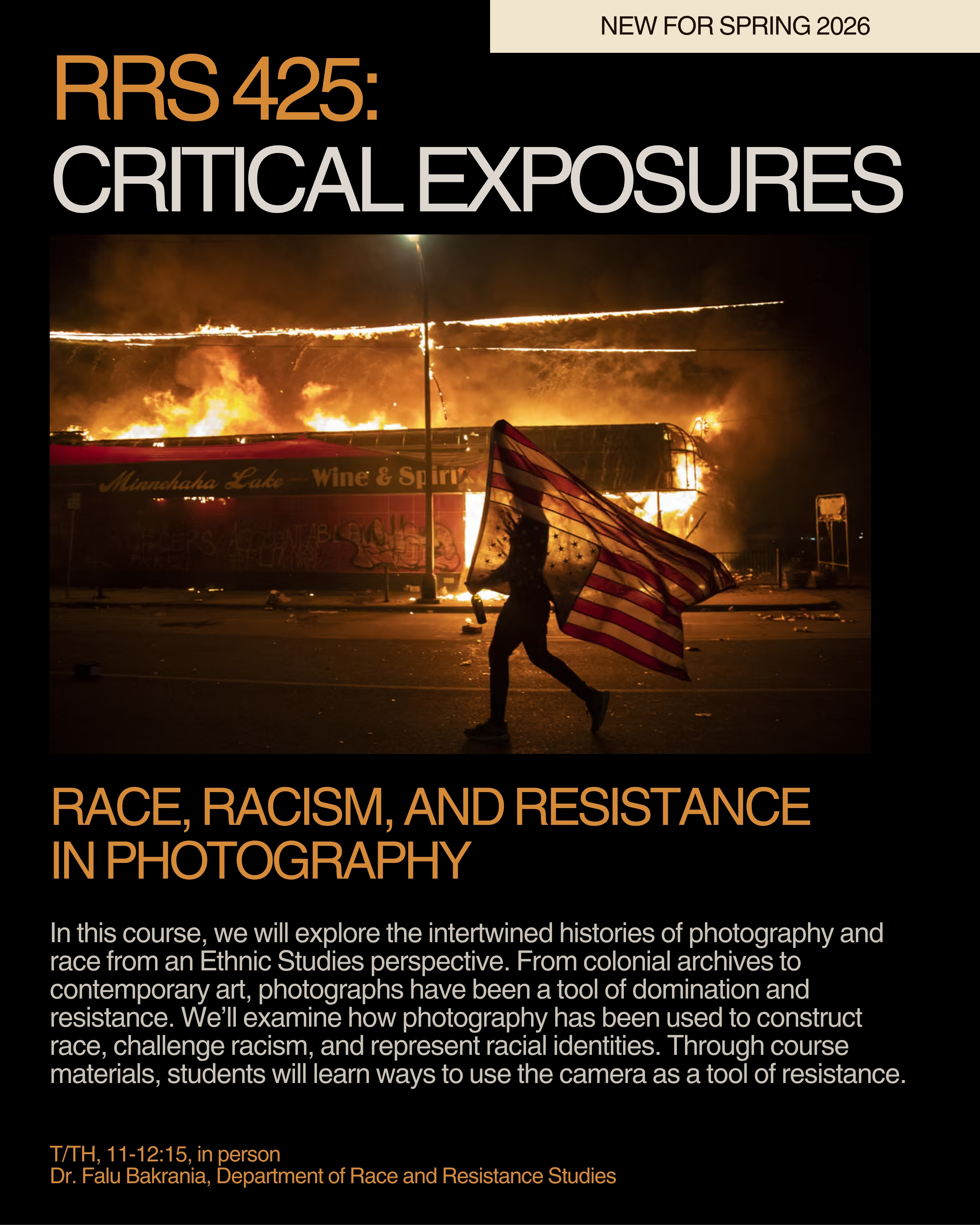
Past Events
On October 22, the Race & Resistance department hosted an open house for students and faculty members where they got a chance to meet peers and faculty to build a community within our department.
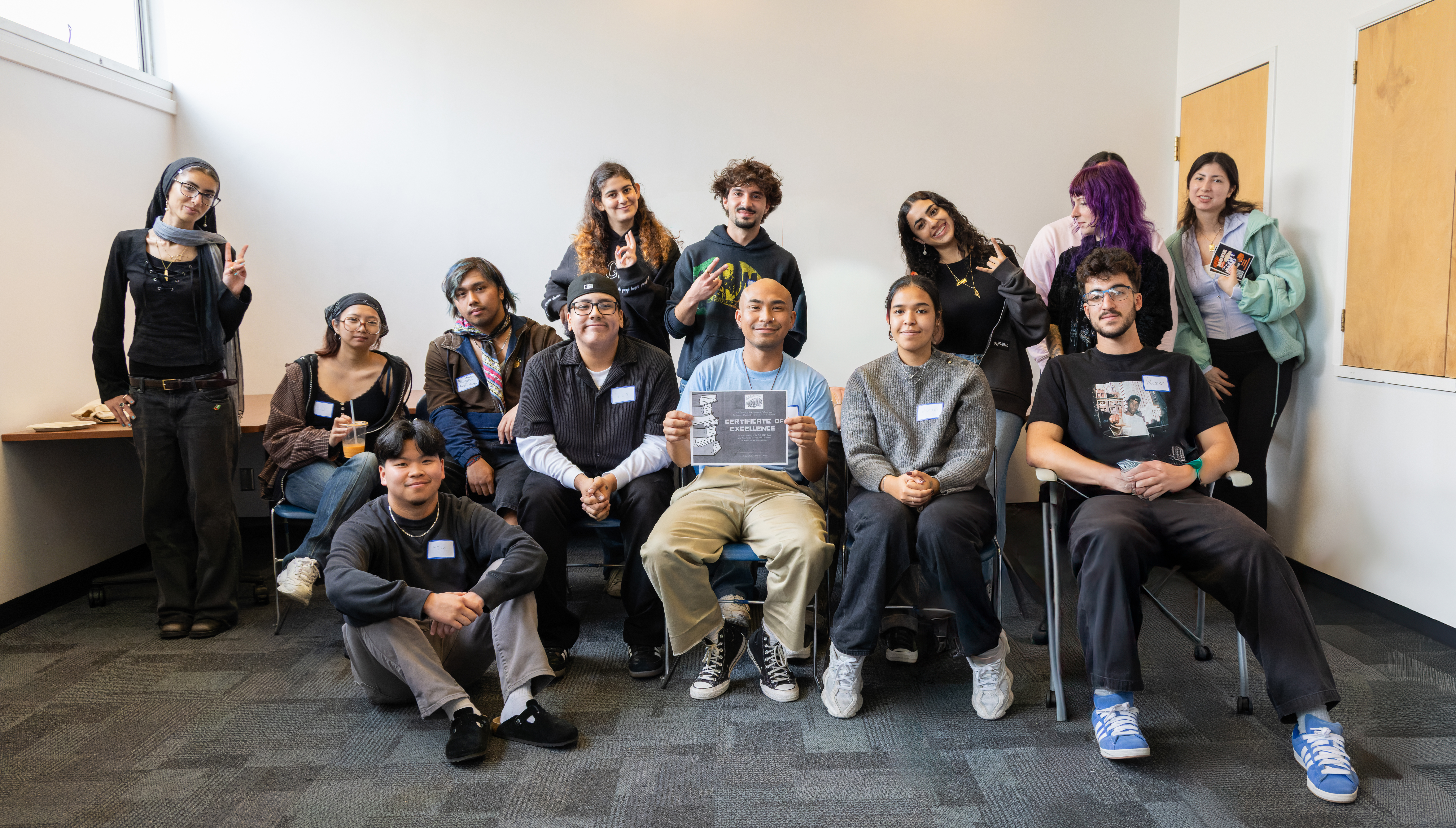
Upcoming Events
Join us for a panel discussion with three Bay Area photographer/activists who have dedicated their work to documenting struggles for social justice.
Brooke Anderson, Nick DeRenzi, and Joyce Xi will discuss how they came to photograph activism and protest, the evolving challenges of this work, and the power of images to advance social change. They will also offer inspiration and insights for students interested in using their cameras as tools for justice.
The panel will be introduced by Mayuran Tiruchelvam (Cinema) and moderated by Dr. Falu Bakrania (Race and Resistance Studies).
The discussion will take place on Wednesday, December 3rd from 12:30 – 1:45 pm in the Fine Arts Building, Room 101 (Coppola Theater).
